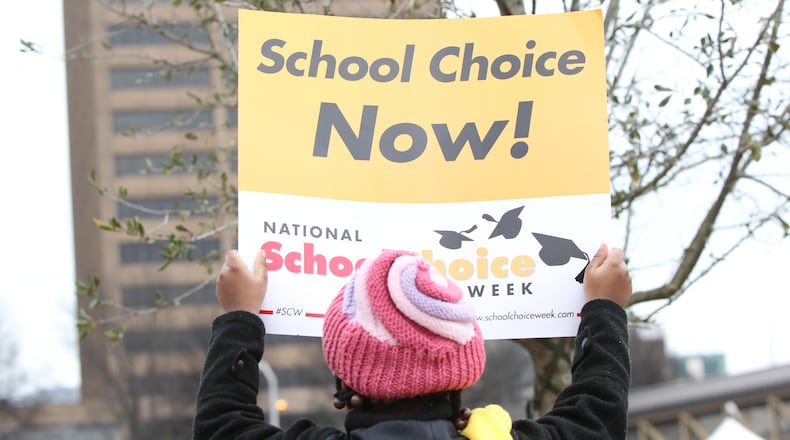Geoff Duncan, a Cumming resident, is Georgia's lieutenant governor. He and his wife, Brooke, send their three sons to Forsyth County Schools.
In this piece, he advocates for expanding school choice options in Georgia. This is National School Choice Week.
By Geoff Duncan
Georgia is one of the fastest growing states in the nation. Our top-ranked business climate continues to spur corporate relocations and small business expansions – creating more job opportunities for Georgians.
However, as companies continue to innovate around 21st century technologies, many Georgians don’t have the skills and talents needed to fill the high-paying jobs that are available. Georgia’s job openings are concentrated predominately across the agriculture, health care, manufacturing and technology fields, which often require employees to have in-depth technical knowledge or hands-on experience.
Now, our education system isn’t producing enough qualified students to fill the amount of available high-demand jobs.
According to the Governor's Office of Student Achievement data, a third of Georgia schools in 2016 scored what amounts to a grade of D or F. This is unacceptable. In an effort to better educate our students and eliminate the skills gap, we need to allow students -- and their parents -- the freedom to choose alternative education options that provide them skills essential for successful careers.
This is National School Choice Week, and I know educators, students, parents and policymakers across the nation will be engaged in important conversations that illustrate how school choice can revolutionize our K-12 education system. I firmly believe school choice can have a profound impact on a student's life – by allowing them the opportunity to attend a public charter school, online academy, homeschool or a private school with a scholarship.
Closing the skills gap will require a multifaceted approach, but school choice should be a large part of the solution.
The Georgia Charter Schools Association reports more than 10,000 students are on waiting lists to win a seat at one of Georgia's 102 charter schools. In 2017, Georgia's tax credit scholarship program awarded over 13,000 scholarships for students to attend private school. Yet, there are thousands more who want to attain these coveted scholarships.
As lieutenant governor, I look forward to working alongside Senate Education Chairman P.K. Martin and the General Assembly to consider education reform that gives students flexibility and allows them to attain an education tailored to their individual education needs.
Potential reforms include:
--Appropriating state funds for charter school buildings. A lack of building funds often impedes the creation or maintenance of new charter schools.
--Eliminating the 10-year sunset on the education tax credit program and implementing an escalator so that the tax credit can grow to serve additional students.
--Exploring Education Savings Accounts to see if we can give more students -- including foster children who have dismal educational outcomes and children from military families -- a chance at a better future.
As parents, Brooke and I have seen firsthand how access to high-quality learning opportunities and top teaching talent fuels success throughout a student’s educational career. We’re blessed to live in an area with a successful public education system.
However, I want to ensure that – through reforms like enhanced school choice – every child has access to the educational opportunities that prepare them for the high-demand jobs of the 21st century. By focusing on expanding school choice, we can close – or at least narrow – Georgia’s skills gap.
About the Author
The Latest
Featured




